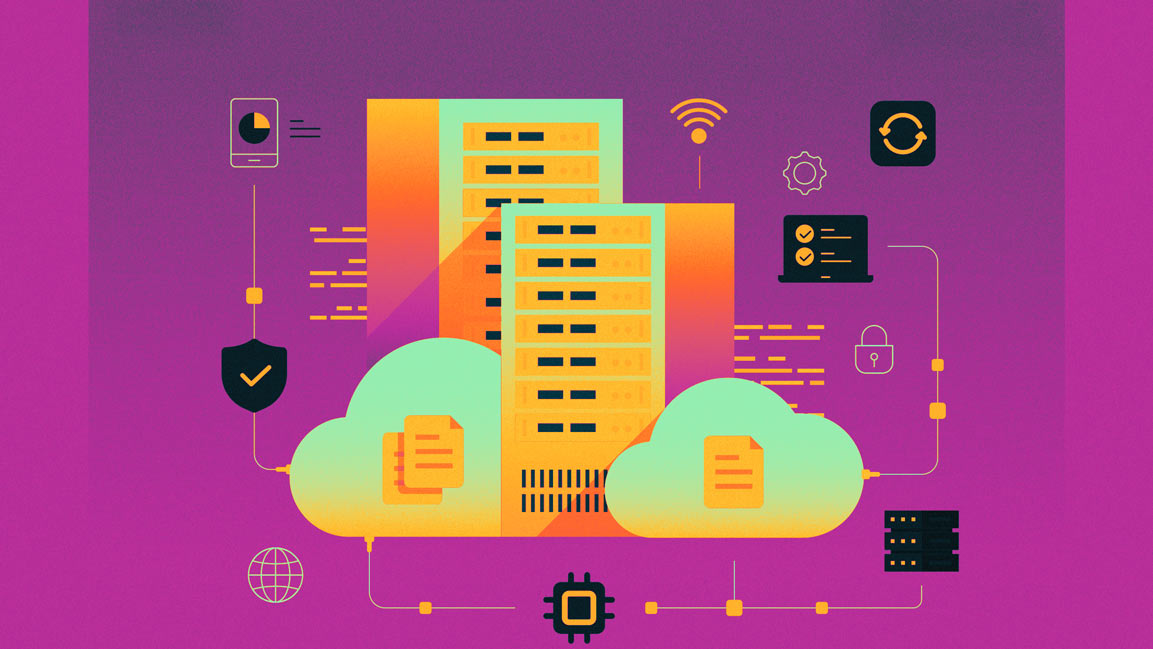AI Public Servants and Biotech Breakthroughs Make Waves at GITEX 2025
From Abu Dhabi’s TAMM AutoGov and Khazna’s data center expansion plans to Microsoft’s local cloud processing initiatives and various AI-focused partnerships took center stage at GITEX Global 2025.
Topics
News
- Inside Al Baraka Bank Egypt’s First Digital Branch
- Dubai Chamber of Digital Economy Partners With Canva to Set Up Regional HQ
- Apple Puts Virtual Health Coach On Hold Amid Tough Competition
- Alphabet Remains Cautious On Apple Deal, Dodges Investor Question
- HBKU and QRDI Enter Partnership to Advance National Tech Capabilities
- UAE Families Expect AI to Redefine How They Live, Bond, and Raise Children

Image source: Chetan Jha/MITSMR Middle East]
There is not a single industry where artificial intelligence is not making strides, and its growing role in biotechnology and genomics is even harder to ignore.
The global biotech market currently stands at $1.68 trillion and is expected to nearly double to $3.75 trillion by 2034, according to Cervicon Consulting.
Meanwhile, the biotech market in the Middle East and Africa alone is expected to reach approximately USD 148.7 billion by 2030, growing at an annual rate of 13.5% from 2024 to 2030, according to Grand Review Research.
The third day of GITEX Global 2025 highlighted this convergence of AI and life sciences. Speakers such as Dr. Asma Ibrahim Al Mannaei, Executive Director of Health Life Sciences, Abu Dhabi; Aida Kamisalic Latific, State Secretary, Ministry of Digital Transformation, Republic of Slovenia; Matt Angle, CEO of Paradromics, USA; and Trevor Martin, Co-Founder and CEO of Mammoth Biosciences, among others, shared insights on the shift from reactive healthcare to predictive health intelligence.
Day 2 Recap: Launches, and Partnerships
TAMM AutoGov Launches
At GITEX, Abu Dhabi introduced TAMM AutoGov, described by officials as the world’s first AI public servant capable of automating tasks such as license renewals, utility payments, and healthcare appointments. The project expands on the existing TAMM platform and is part of the government’s effort to establish an “AI-native” government by 2027.
Ahmed Tamim Hisham Al Kuttab, Chairman of the Department of Government Enablement, called the system “transformative, redefining what government means in people’s lives.” The TAMM platform now features AI Vision and Smart Guide for step-by-step assistance, along with voice-enabled translation tools and personalized dashboards. It also introduces new hubs such as Family, Mobility, and Sahatna (health).
“These new TAMM features redefine what government means in daily life. We’re moving away from one-off transactions to intelligent journeys that adapt to each person’s needs. People can focus on their families, their work, and their ambitions, knowing that government is working quietly in the background for them. This is the true promise of an AI public servant to give people back time and peace of mind,” expressed Dr. Mohamed Al Askar, Director-General of TAMM.
Khazna Data Centers Expands 1GW
Khazna Data Centers announced plans to add over 1GW of operational capacity over the next five years, including new facilities in Abu Dhabi, Dubai, Ajman, and international locations in Saudi Arabia and Italy. With $2.62 billion in financing, the company is also developing infrastructure for Stargate UAE, part of the planned 5GW UAE-US AI Campus.
According to the company, each new data center is expected to contribute over $320 million to local GDP and create more than 1,150 jobs.
“As the world enters an era defined by AI and digital economies, infrastructure is becoming the catalyst for national transformation. At Khazna, we are proud to be building the foundation layer for AI-native nations, combining regional leadership with global ambition,” said Hassan Alnaqbi, CEO of Khazna Data Centers. “Our expanded capacity roadmap reflects both the urgency and the opportunity ahead, as we partner with governments and enterprises to deliver resilient, sustainable infrastructure purpose-built for the next generation of compute.”
Microsoft 365 Copilot Local Processing
Microsoft revealed plans to process Microsoft 365 Copilot data locally in Dubai and Abu Dhabi from early 2026, ensuring compliance with UAE AI regulations. The move supports national AI strategies and is expected to create over 150,000 new jobs through Microsoft’s UAE cloud ecosystem.
“The UAE has always led with vision and ambition,” said H.E. Omar Sultan Al Olama, UAE Minister of State for Artificial Intelligence. “Microsoft’s investment in in-country AI infrastructure is a testament to our shared commitment to building a future where innovation and trust go hand in hand. This move will empower our government entities to adopt AI confidently, knowing their data is protected and processed within our borders.”
AI Partnerships
The second day was also marked by strategic collaborations.
Inception, a subsidiary of G42, signed two separate Memoranda of Understanding (MoUs) with Brain Co., a Silicon Valley-based AI company, and Symanto, an AI research and product development firm. Both agreements focus on developing scalable and explainable AI solutions for government and enterprise applications.
The collaborations come amid rising regional investment in AI, with around 65% of Middle East organizations planning to increase their spending in this area.
Ashish Koshy, CEO, Inception, said the company’s goal is to “turn advanced research into solutions that deliver lasting value for businesses,” adding that working with Brain Co. and Symanto will help build AI systems that are “high-performing, trustworthy, and aligned with real-world outcomes.”
Clemens Mewald, CEO of Brain Co., noted that the partnership combines complementary expertise “to fully realize the potential created by AI across enterprises.”
Similarly, Khaleeq Aziz, CEO of Symanto, said the collaboration aligns shared ambitions to “build products and solutions that can transform industries and create lasting impact.”
Also at the event, Intel Corporation signed an MoU with AIREV, an Abu Dhabi-based AI company, to optimize AIREV’s OnDemand agentic AI platform for Intel’s Xeon processors and Gaudi AI accelerators. The companies plan to co-develop solutions ranging from small-scale inference to large-scale model training for enterprise and government users.
Intel and AIREV said the collaboration will include joint research, product validation, and market activities designed to enhance AI adoption while maintaining data security and performance standards.
GITEX Global 2025, running until 17th October, brings together over 6,800 tech companies, 2,000 startups, 1,200 investors, and delegations from more than 180 countries.








